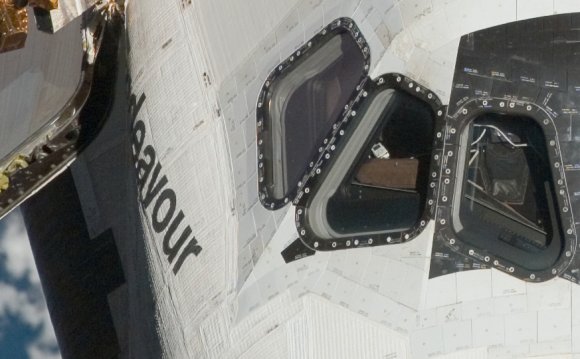
 A rocket booster continues upward as the Challenger disappears in a fireball
A rocket booster continues upward as the Challenger disappears in a fireball
Credit: NASA
When the news came thirty years ago today that Space Shuttle Challenger had been lost along with her seven-member crew just 73 seconds after launch, my friends I could only stare in disbelief at the television set as the footage was replayed over and over. I was a graduate engineering student at the time, but I was determined to become an astronaut. In fact, I had just received the NASA astronaut application package I had requested a week or so earlier.
Two weeks later, I completed my application, mailed it to NASA, and crossed my fingers. Did I think about the risks? Of course I did. Anyone who says otherwise is not being completely honest. The amount of energy it takes to bring a spacecraft to orbital speed, and the forces it endures on re-entry, makes risk impossible to avoid.
Still, this was the first time the United States had lost a crew during flight. We had suffered the loss of the three-man Apollo-1 crew some years earlier in a fire durng a ground test, and had had a near miss when Apollo-13 became disabled en route to the Moon. But as a nation, we were especially stunned and shocked by this accident. This is partly because it was broadcast on live TV, then played again and again, and partly because Challenger, in addition to carrying five professional astronauts, also carried a satellite engineer and the first teacher who was to fly to space—two “civilians” who were not professional fliers.
We mourned the loss of the crew, and set about the painful task of investigating the mishap to determine root causes and fixes, to minimize the chance of this happening again. We learned many lessons, both technical and cultural. The Space Shuttle and its supporting infrastructure were completely recertified before the Return to Flight mission two years later.
Challenger was a wake-up call for the U.S. space program. Although we had been flying spacecraft for several decades, we were probably a little naïve in that we never quite believed that something like this could happen to us. We had been extremely successful in our space missions and had come through every inflight close call, until then.
But as astronauts know better than anyone else, risks, incidents and mishaps are inevitable in the development any high-performance vehicle. The emergence of supersonic flight during the 1940s and of the Century Series of fighters in the 1950s came with the loss of several test pilots. Still, it was a glorious time. Rapid advances were made in aircraft technology and performance, and the following decade brought the birth of the Space Era.
In the aftermath of Challenger, there was never any doubt about continuing, never the thought of quitting. After the Columbia accident almost seventeen years later, however, the program was wound down over the next eight years. Once construction of the International Space Station was completed, the Shuttles were grounded and the shuttle program ended.
I think that was a mistake. Space Shuttle was and remains the most capable flying machine ever conceived, built and operated. We learned much from the thirty years of Shuttle flights, and in my opinion, we should still be flying them. Shuttle carried a crew of seven, plus nearly sixty thousand pounds of payload to low earth orbit. After transforming from a rocket into an orbital research or construction platform, it entered the atmosphere and landed on a conventional runway at the end of its mission. After around one hundred days of processing, it was ready to fly again.
Nothing like this had ever been proposed before, let alone actually built or operated. Nothing has replaced it since. We gave up on this wonderful machine, because it was deemed too risky and expensive. But we knew about the risks going in. As for cost, take a look at the astronomical costs of current space vehicle programs and tell me that Shuttle was too expensive to continue to operate.
RELATED VIDEO




 Judith Arlene Resnik (April 5, 1949 – January 28, 1986) was an American engineer and a NASA astronaut who died in the destruction of the Space Shuttle Challenger during the launch of mission STS-51-L.
Judith Arlene Resnik (April 5, 1949 – January 28, 1986) was an American engineer and a NASA astronaut who died in the destruction of the Space Shuttle Challenger during the launch of mission STS-51-L.







